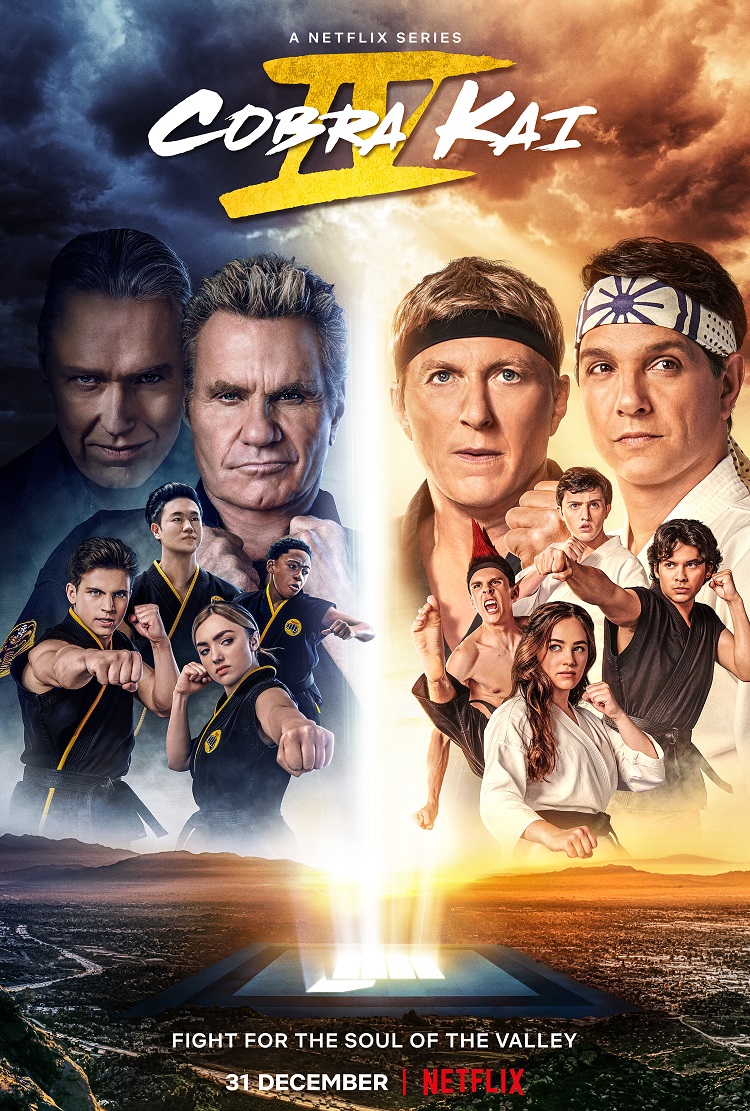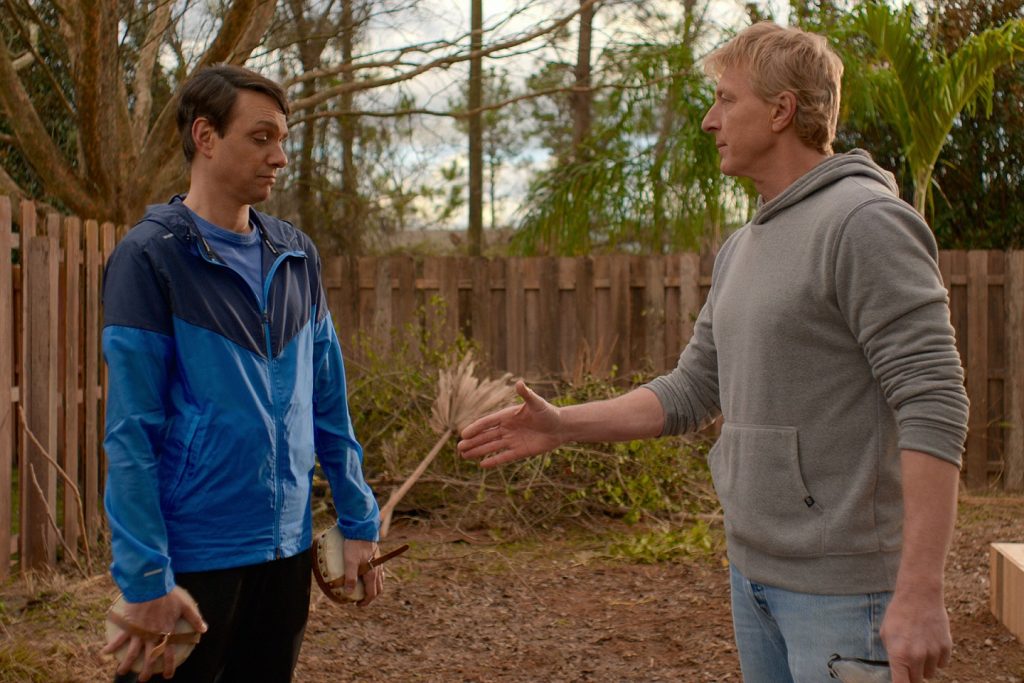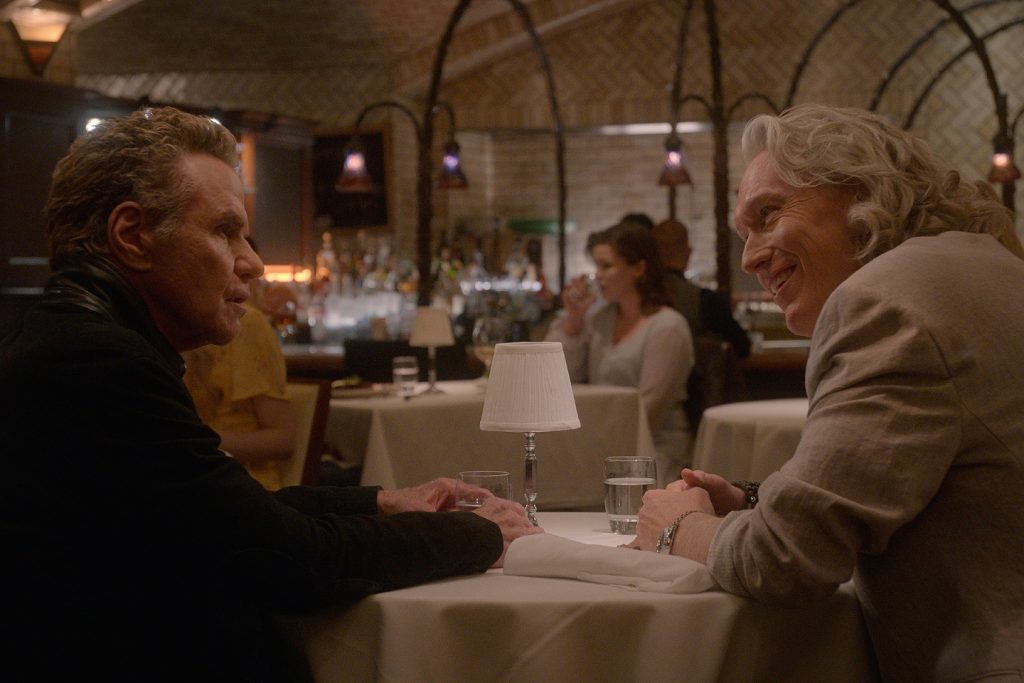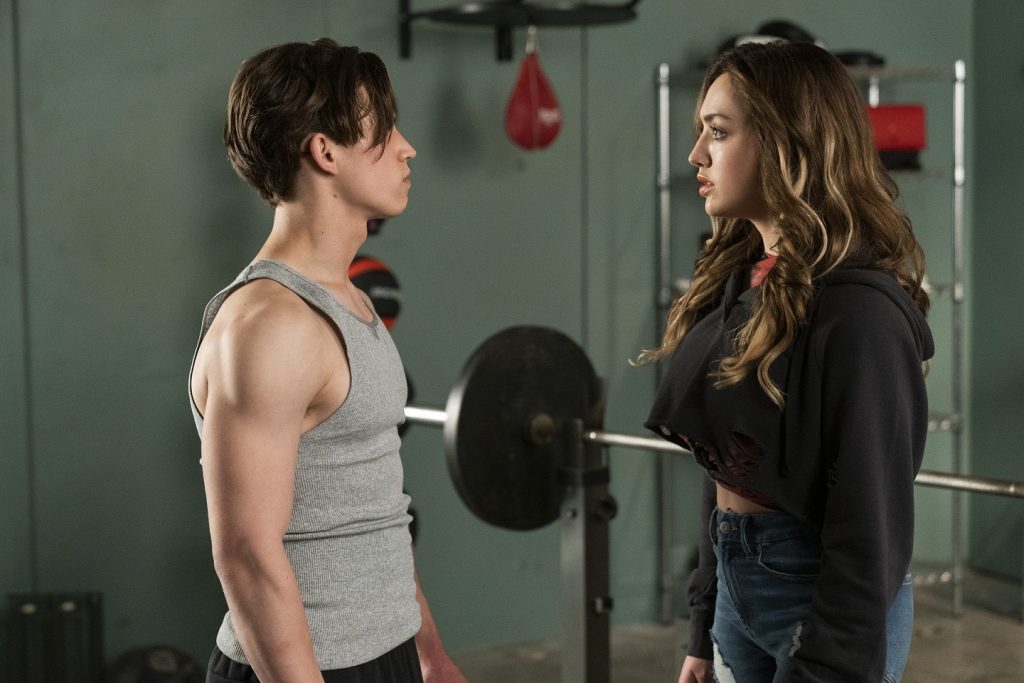
Cobra Kai is at the same time a show that relies heavily on a knowledge of what came before it and something new audiences should be able to understand no matter where they start watching. There is an inherently cyclical nature to the drama, and for those who missing context, frequent clips of The Karate Kid or one of its sequels are bound to flash across the screen with dependable regularity. As Cobra Kai enters its fourth season, things are very much still the same, but fans of the concept will find this latest iteration to be a fulfillment of what they enjoy most about this revenge-centric dramedy about teenagers and the adults who often seem just as lacking in maturity.
The rivalry between Daniel LaRusso (Ralph Macchio) and Johnny Lawrence (William Zabka) dates back to 1984, when they faced off against each other in the All Valley Karate Tournament, and not much has improved in the time since that momentous fight. But season four finds them working together in an unprecedented way, reluctantly united to combat a far more serious threat posed by the dojo where Johnny originally trained that serves as the namesake of this show: Cobra Kai. Daniel and Johnny’s styles couldn’t be any more different, but they both know they don’t want their students headed down the dangerous path Cobra Kai teaches that involves the embrace of violence and a prideful attitude towards breaking rules.

Daniel and Johnny’s antics really are reminiscent of teenagers, unable to accept the fact that they may never see eye-to-eye even though they have similar goals. Daniel takes himself far too seriously and doesn’t believe that other viewpoints are legitimate if they don’t meet the strict standards set by his mentor, Mr. Miyagi. Johnny doesn’t care what anyone thinks of him, and much of his behavior, like offering Daniel a slice of deli ham that has water visibly dripping from it and cooking up an “authentic” meal for his Ecuadoran guests based on a Chili’s recipe, makes it hard to believe that he’s existed for more than fifty years without anyone pointing out simple truths about life to him. Their incompatibilities are the source of much humor, and occasionally more impactful and enduring dramatic conflict.
Season four intensifies its focus on Cobra Kai and a conflicted sense of empathy towards its members. As if John Kreese (Martin Kove) wasn’t already intense enough, the sensei draws back in another villain from the film series last seen in The Karate Kid Part III. Terry Silver (Thomas Ian Griffith) is introduced as living a life of luxury, eating tofu and far removed from the world of karate, but Kreese soon encourages him to return to his roots and join him at the dojo. Silver’s competitive spirit matches Kreese’s, almost making him look tame by comparison, and his wealth allows him to far more powerful than Kreese ever was, positioning Cobra Kai to be even more able to corrupt young minds.

For however clearly bad its leaders are, the students at Cobra Kai are less easy to condemn. Robby (Tanner Buchanan) is still processing the consequences of his past actions and the influence of his father, Johnny, while trying to find the place he fits in. Tory (Peyton List) is struggling to make ends meet, and faces an uphill battle whenever she tries to make peace with former foes. And a new character, Kenny (Dallas Dupree Young), seems kind and wholesome until the experience of being relentlessly bullied sends him straight to Cobra Kai, a surely negative influence that, just as it does for Robby and Tory, provides an outlet for frustration that can be turned into ferocious competitive energy.
The way in which these kids interact when they’re not explicitly in the middle of a competition continues to be intensely problematic. Frequent fights break out, and there are considerable casualties that get swept under the rug that deserve far more attention from authorities whose earlier idea to ban karate may be worth revisiting given the consistent violence inflicted throughout the Valley. Not all of it is physical, with emotional weaponry being discharged frequently by all sides, but the idea of harnessing negative thoughts and churning them out skillfully doesn’t always work and leads to misuse of training. And it’s not only Cobra Kai who are the perpetrators, with some of the “good guys” from Miyagi-Do and Eagle Fang just as complicit in stirring up trouble and wielding cruelty.

This show’s classification as a Comedy Series, which earned it a breakthrough top Emmy nomination last season for its third round, is continually perplexing due to that twisted morality. If even those who are meant to be the heroes of this story are capable of causing pain to others with no consequences, what message does that send? Perhaps it’s that the show doesn’t exist merely as a mirror of Daniel’s teaching methodology, where doing good results in being rewarded, and keeping anger in check is paramount. Kreese and Silver emphasize victory at all costs, which doesn’t account for the damage done in the process of achieving it. The show might be most aligned with Johnny’s approach, which is to strike first, not always considering what may come of it but not content to sit back and be anyone’s punching bag.
Some audiences may not find this show’s unwillingness to endorse a particular viewpoint troubling, and that position is certainly nothing new. That’s true of this show in general, which, in its fourth season, offers up more of the same. Its formula is proven and works well to deliver a form of entertainment that is expected and also simultaneously rewarding to those who enjoy it. Daniel and Johnny aren’t really capable of significant change, but that doesn’t mean they won’t try and likely fail. Watching the next generation encounter setbacks and make different choices is the reason that this show, which revitalized the Karate Kid franchise more than three decades after it first began, works. Those who loved seasons one through three will surely be satisfied with this newest run, and newcomers should be able to feel acclimated, if not quite as enthralled, without much difficulty.
Grade: B
Check out more of Abe Friedtanzer’s articles.
https://www.youtube.com/watch?v=I3uX4uwrAaY
All ten episodes of season four of Cobra Kai premiere on Netflix on Friday, December 31st.

